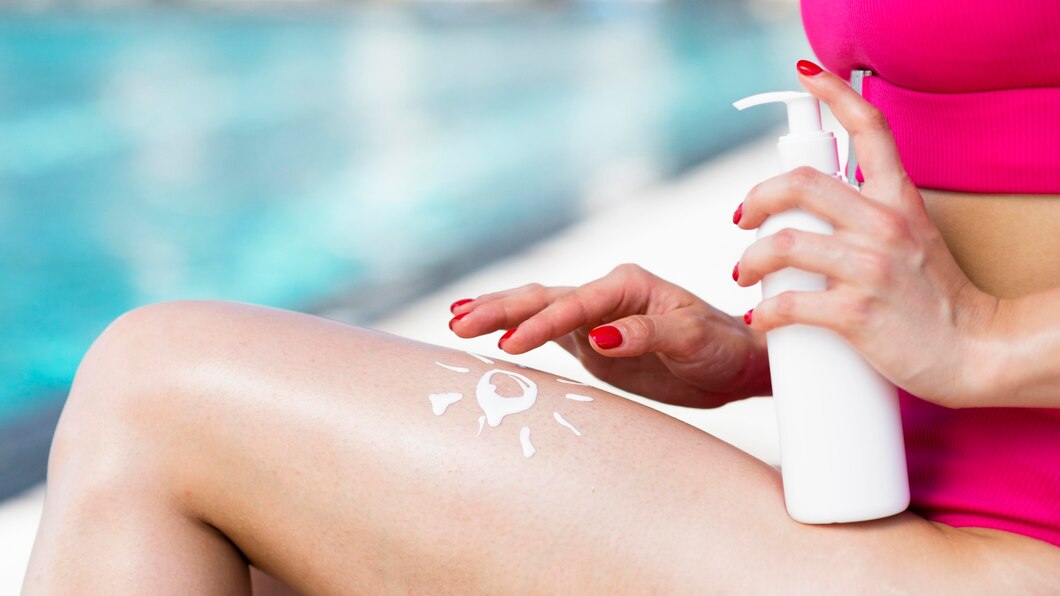SPF Sunscreen: How to Pick the Best One for Your Skin
Protecting your skin from the sun is essential. Whether you’re heading to the beach, running errands, or just sitting by the window, UV rays can sneak their way into your skin, causing damage over time. This is where SPF sunscreen steps in as your skin’s best friend. But with so many options available, choosing the right sunscreen can be confusing. Let’s break it down to make it simple.
1. Understanding SPF: What Does It Really Mean?
SPF stands for Sun Protection Factor. It’s a measure of how well the sunscreen will protect your skin from UVB rays, which are the primary cause of sunburn and contribute to skin cancer. The number next to SPF indicates how long it would take for your skin to burn under the sun compared to no protection at all. For example, if you’re wearing SPF 30, it should take you 30 times longer to burn than if you weren’t wearing sunscreen.
2. Identify Your Skin Type
Before you can choose the best sunscreen, it’s crucial to understand your skin type because different skin types react differently to sun exposure and sunscreen formulations.
A. Oily Skin
If you have oily skin, go for a sunscreen that’s oil-free and non-comedogenic (won’t clog pores). Gel-based sunscreens or lightweight fluid options work well here.
Product Recommendation:
The Neutrogena UltraSheer Dry-Touch SPF 50+ is a great option for oily skin. It’s non-greasy, light, and offers high SPF protection.
B. Dry Skin
Dry skin needs hydration along with sun protection. Look for sunscreens that are moisturizing and contain ingredients like hyaluronic acid or glycerin.
Product Recommendation:
The Lotus Herbals Safe Sun SPF 50 PA+++ UV Screen Matte Gel is suitable for dry skin, as it provides both protection and moisture.
C. Sensitive Skin
Sensitive skin types need gentle formulas that are free from fragrances, alcohol, and parabens. Look for sunscreens labeled as “mineral” or “physical,” containing zinc oxide or titanium dioxide.
Product Recommendation:
The La Roche-Posay Anthelios Mineral Zinc Oxide Sunscreen SPF 50 is ideal for sensitive skin. It’s lightweight, non-irritating, and offers broad-spectrum protection.
D. Combination Skin
For combination skin, a balanced sunscreen that doesn’t add extra oil but still provides enough hydration is key.
Product Recommendation:
The Mamaearth Ultra Light Indian Sunscreen SPF 50 PA+++ is designed to suit Indian skin and works well for combination skin types, offering hydration without being greasy.
3. Broad-Spectrum Protection: A Must-Have
When selecting a sunscreen, always opt for one that offers “broad-spectrum” protection. This means it protects against both UVA (which causes aging) and UVB (which causes burning) rays. A broad-spectrum sunscreen helps prevent skin damage, premature aging, and even skin cancer.
4. What About Water Resistance?
If you’re planning to swim or engage in any activity that makes you sweat, look for a water-resistant sunscreen. Keep in mind, though, that no sunscreen is completely waterproof. Water-resistant sunscreens are effective for a certain amount of time, usually 40 to 80 minutes, so you’ll need to reapply.
Product Recommendation:
The Biotique Bio Aloe Vera Face & Body Sun Lotion SPF 30+ is a good choice for water-resistant protection. It’s also suitable for all skin types.
5. How Much Sunscreen Should You Use?
Most people don’t use enough sunscreen, which reduces its effectiveness. A good rule of thumb is to use about a teaspoon of sunscreen for your face and about an ounce (a shot glass worth) for your entire body. Reapply every two hours, or immediately after swimming or sweating.
6. SPF: Is Higher Always Better?
You might think that SPF 100 provides twice the protection of SPF 50, but that’s not the case. SPF 30 blocks 97% of UVB rays, while SPF 50 blocks about 98%. Higher SPFs do provide more protection, but the difference is minimal, and they often require a thicker application, which some people may find uncomfortable.
FAQs About SPF Sunscreen
Q1. Can I use sunscreen only when it’s sunny?
A1. No, you should wear sunscreen every day, even on cloudy days. UV rays can penetrate clouds and still cause skin damage.
Q2. Is it necessary to apply sunscreen indoors?
A2. Yes, especially if you’re near windows, as UVA rays can penetrate glass and cause skin aging.
Q3. Can I skip sunscreen if my makeup has SPF?
A3. No, the SPF in makeup is usually not enough to protect your skin fully. It’s better to apply a sunscreen first, then layer makeup on top.
Q4. Do darker skin tones need sunscreen?
A4. Absolutely. While darker skin tones have more melanin, which offers some protection, they are still at risk for sun damage and skin cancer.
Wrapping It Up
Choosing the right SPF sunscreen is more than just picking the highest number on the bottle. It’s about finding a product that suits your skin type, offers broad-spectrum protection, and fits your lifestyle. With so many great products available, protecting your skin from the harmful effects of the sun has never been easier.
Remember, applying sunscreen is a crucial step in your skincare routine, not just a seasonal affair. So, find your perfect SPF match and wear it every day!
